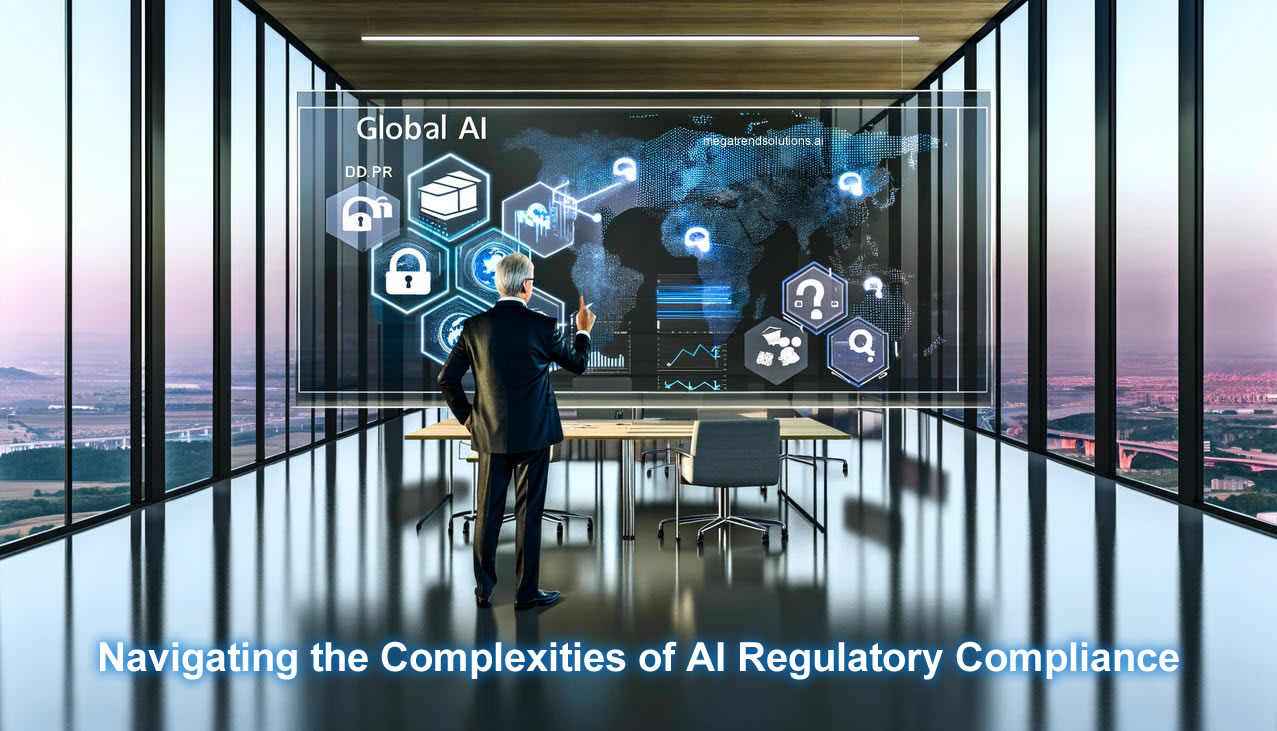In the swiftly evolving landscape of Artificial Intelligence (AI), senior executives face the formidable challenge of steering their organisations through the intricacies of regulatory compliance. As AI technologies become increasingly integral to business operations, understanding and adhering to the multifaceted legal frameworks that govern them is paramount. This guide illuminates the key areas of concern and offers insights into navigating these complexities effectively.
Understanding the Regulatory Landscape
The regulatory landscape for AI is characterised by its dynamic nature, with jurisdictions around the globe developing and refining legislation to address the unique challenges posed by AI technologies. These regulations often encompass data protection, privacy, ethical AI use, and transparency. Notably, the European Union’s General Data Protection Regulation (GDPR) has set a benchmark for data privacy, influencing similar regulations in other jurisdictions.
Key Areas of Focus for Compliance
Data Protection and Privacy: At the heart of AI regulatory compliance is the imperative to protect personal data. Regulations such as the GDPR and the California Consumer Privacy Act (CCPA) necessitate stringent measures to safeguard data privacy, including obtaining explicit consent for data collection and ensuring data minimisation.
Ethical AI Use: Ethical considerations are increasingly becoming codified in regulatory frameworks. This includes ensuring AI systems do not perpetuate biases or make discriminatory decisions. Compliance in this area requires a thorough audit of AI algorithms and the data sets on which they are trained.
Transparency and Explainability: Regulatory bodies are mandating greater transparency in AI operations. This entails disclosing how AI systems make decisions, particularly when these decisions directly impact individuals. Achieving compliance involves implementing explainable AI frameworks that can articulate decision-making processes in understandable terms.
Accountability and Governance: Establishing clear accountability for AI systems’ decisions and actions is a regulatory expectation. Organisations must develop robust governance structures that delineate responsibilities and oversee AI deployments, ensuring they meet ethical and legal standards.
Strategies for Effective Compliance
Achieving regulatory compliance in the domain of AI is not a one-time endeavour but a continuous process that necessitates strategic planning and ongoing vigilance. Here are some strategies to guide senior executives in this journey:
- Stay Informed: Given the rapid pace of regulatory change, it is crucial to stay abreast of developments in AI legislation globally. This may involve dedicating resources to legal and regulatory monitoring.
- Implement Ethical AI Guidelines: Developing and adhering to internal ethical AI guidelines can help pre-empt regulatory issues and ensure that AI deployments align with societal values and legal requirements.
- Invest in Data Governance: Robust data governance frameworks are essential for ensuring data privacy and quality. This includes implementing data encryption, access controls, and regular audits.
- Foster Transparency and Accountability: By embedding transparency and accountability into AI systems from the outset, organisations can not only comply with regulations but also build trust with stakeholders.
- Engage in Dialogue with Regulators: Proactively engaging with regulatory bodies and participating in industry forums can provide insights into regulatory trends and expectations, facilitating more effective compliance strategies.
Looking Ahead
As the regulatory environment for AI continues to evolve, senior executives must lead with foresight and adaptability. The complexity of AI regulation should not be viewed merely as a hurdle but as an opportunity to foster responsible innovation and build trust in AI technologies.
The journey towards regulatory compliance is intricate, yet with the right strategies and a commitment to ethical principles, it is a navigable path that can enhance the value and sustainability of AI initiatives.
At Megatrend Solutions, we understand the criticality of navigating the AI regulatory landscape with confidence and clarity. Our AI consulting and solutions development services are designed to support senior executives in achieving compliance while harnessing AI’s transformative power.
Together, let us embark on a path that adheres to the highest regulatory compliance standards and sets a benchmark for responsible and innovative AI deployment.




